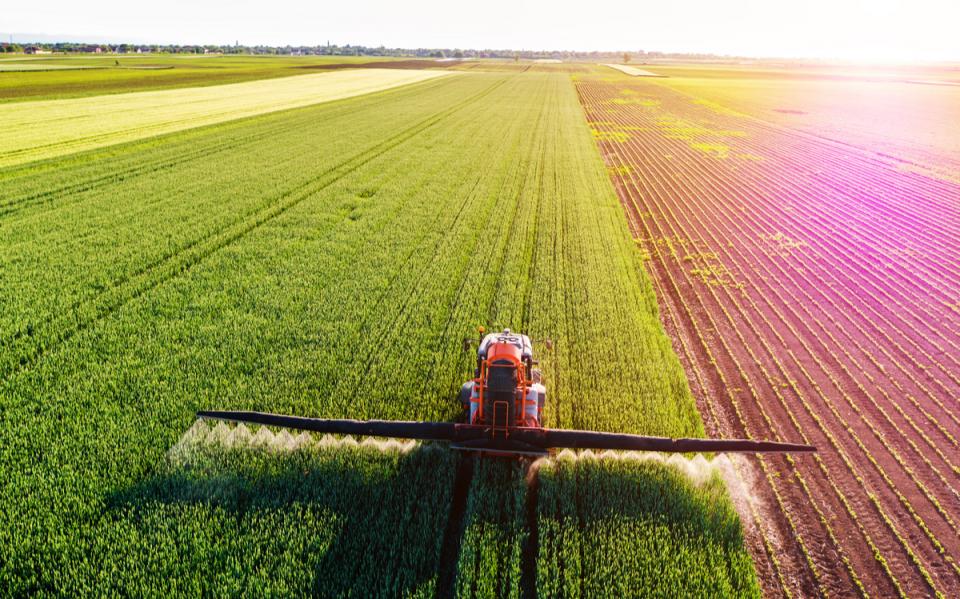Just like in intensive agriculture, the use of pesticides is virtually inevitable when growing pot on a large scale. It’s crucial, though, to make sure our grow is in good health because, if it’s not, it could be fatal to our pockets. The massive use of pesticides can severely damage our environment. So, what’s the solution?

The "responsible" use of pesticides in intensive farming.
Pesticides have been intensively used in agriculture since the '40s-'50s. They're indeed necessary to meet all the needs of the world's population as well as to guarantee the economic viability of agriculture. Hence the importance of using phytosanitary products wisely.
During these last years, though, we've grown more aware of the negative impact of pesticides on our planet and on our health. Prolonged exposure to this kind of phytosanitary products has proved to trigger the development of serious diseases such as cancer.
Despite the advanced protection equipment nowadays available on the market, it is a problem with no easy solution for these products remain long in the environment and so we can't help being constantly exposed to the chemical molecules in them, which can be harmful to our health and that of most living beings.
Just by touching a plant treated with pesticides, you'll see exactly what we mean. Not to mention the horrible health problems caused to those living near large-scale grows, who without even realizing it breathe pesticide residue.
But the growers are not to be blamed for this because their sole objective is to make sure the crop goes smoothly so they can make a living out of it. Sometimes they have no choice but to use this kind of products.
These last years, a new type of agriculture called "sustainable agriculture" has emerged. It's a farming practice based on a more rational use of pesticides that seeks to reduce its use up to the minimum required at every moment. This way, not only the use of pesticides but also their impact on the environment is efficiently reduced.
What about the cannabis field?

The cannabis industry and the cultivation of marijuana are now in full swing, which means that massive-scale grows are likely to increase. That's why to prevent the consequences and problems derived from the massive use of pesticides, it's essential for future generations to become aware, without delay, of the scope of this phenomenon.
A good way to reduce the ecological footprint, for example, would be to opt for natural predators and organic growing methods. Biodynamic farming would also make a great alternative. In fact, this advanced organic farming system has been used in vine-growing regions to reduce the build-up of pesticides for some years now.
It opposes mono-cropping practices as they lead to soil degradation and fertilizer and pesticide build-up. It's basically about rotating crops to encourage healthy soil. The regenerative farming techniques used in biodynamic farming reduce the pesticide build-up, slow down soil degradation and curb the presence of toxic molecules.
Chemical herbicides must also be avoided. Alternatively, you can grow plants (alfalfa, clover...) that prevent the development of weeds and protect the soil. The use of mechanical devices is advisable too yet sometimes it's virtually impossible given the land's characteristics.
All these techniques do require a bit more time and effort; that's true. However, it's thanks to them that we'll be able to protect the environment and the available resources. It's the only way to ensure our crop's continuity. But not just that. We'll also be able to harvest an awful lot of delicious organic cannabis flowers with unbeatable features.
They'll bring benefits to each and every one of the chain links: farm workers will be less exposed, the product offered to the consumer will be healthier and of better quality, and the natural resources will be used more responsibly and sustainably.
HSO Team





Give us your feedback
Your rating (between 1 and 5)
1 2 3 4 5Leave a comment